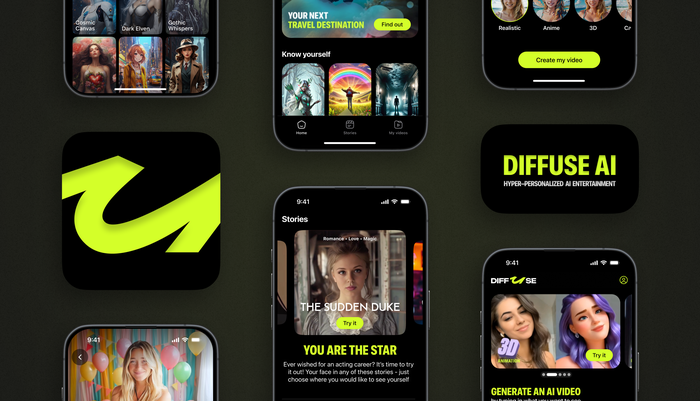The Prompt: We asked business leaders what they’re expecting from generative AI

Philip Moyer
Global VP, AI & Business Solutions at Google Cloud
Stay up to speed on transformative trends in generative AI
Business leaders are buzzing about generative AI. To help you keep up with this fast-moving, transformative topic, each week in “The Prompt,” we’ll bring you observations from our work with customers and partners, as well as the newest AI happenings at Google. In this edition, Philip Moyer, Global VP, AI & Business Solutions at Google Cloud, discusses a recent survey we conducted with dozens of executives on their AI priorities and predictions.
There are few companies and boardrooms these days where generative AI isn't part of the conversation—or even the entire conversation. That’s certainly what we’ve heard at recent events we’ve held to give hundreds of executives from our top customers a hands-on look at the potential of generative AI.
Between sessions, we conducted informal surveys to find out which generative AI topics most interested these business and technology leaders. More than 50 agreed to offer their opinions, and I wanted to share them with you in this week’s edition of “The Prompt.”
Organizations feel the pressure to adopt generative AI, but still lack critical AI skills
Despite being a relatively new technology, there’s more than just hype and excitement around generative AI. The race to adopt generative AI tools is officially on.
Roughly two-fifths of executives we spoke with reported feeling a high degree of urgency to adopt generative AI, whether or not their companies are ready. Some 62% said they think their organizations lack the most critical skills to execute their AI strategy, while only 4% believe they have all the skills they need to achieve their AI goals.
To an extent, this may reflect the newness of the technology, since leaders aren’t always sure which skills are in fact critical. Some executives worry that they need more data science experts just to get started—and as we’ve discussed previously in “The Prompt,” that’s often not the case. Others focus on emerging tasks, such as prompt engineering, or whether their current developer talent can be easily upskilled to work with generative AI.
Newness aside, this sentiment was echoed in a separate survey we did with developers at Google I/O 2023. Some 64% said they feel a high sense of urgency to adopt generative AI, yet just over half said their organization has a shortage of the most critical skills.
Clearly, one of the first steps to adopting more AI at organizations won’t just be more AI tools—it will be more AI skills, specifically, more workers with AI skills.
Both executives and developers are concerned about the quality of information from generative AI tools
While many executives see generative AI as a transformation and innovation opportunity, they also commonly bring up risks.
One of the recurring themes we’ve heard is uncertainty whether the outputs from generative AI tools are reliable. Can we protect customers and employees from getting incorrect information from AI? How do we mitigate the risk of getting results that contain inherent bias? Will mistakes or poor interactions create negative outcomes?
Attendees said their top concerns were AI giving people the wrong information, at 70%, and results showing bias, at 68%. This was followed by errors and hallucinations at 41%.
Surprisingly, most participants brought up these concerns even more often than other common high-priority topics, such as the security of data or the potential for job disruption. For instance, less than a fourth of respondents flagged business data exposure as a main risk.
The areas that benefit the most from generative AI may not be IT
Another interesting insight is that generative AI is gaining momentum as a technology that supports functions outside of IT. For example, nearly 70% of survey respondents said marketing organizations stand to gain the most from generative AI, closely followed by business operations and logistics.
This differs significantly from a recent survey by the Harris Poll, conducted April 4 – 10 among 201 C-suite officers employed at U.S. companies with over 1000 employees, which found that more than 90% of executives believe IT will be the area with the most to gain from adopting generative AI tools and technologies. While most of our informal survey participants specifically called out engineering as an area with lots of potential use cases, they were less likely to call out the overall IT organization.
We saw similar themes at Google I/O, with developers identifying customer service, software development, and content creation as top generative AI use cases.
It’s another reminder of both this technology's far-reaching potential and the need to keep testing and tracking its use. What we think the best use cases are, and what they’ll wind up being, still remains a matter of exploration and collaboration.
This week in AI at Google
Advertising goes generative. Google announced new products that let companies infuse generative AI into advertising.
Getting to know Google Cloud’s new AI products. Following the variety of AI announcements at Google I/O 2023, Google Cloud published blogs to dive deeper into our new speech model Chirp and Embeddings API.
Empowering developers to innovate with AI. Google has been named a Leader in the 2023 Gartner® Magic Quadrant™ for Cloud AI Developer Services report.
Research never sleeps. Google’s AI researchers continue to break new ground, with this week’s advances including new approaches to improve generative AI reasoning with charts and symbols and Barkour, a new agility benchmark for quadrupedal robots.
Start searching. We’re opening up access to Search Labs, a new program that provides access to early generative AI experiments in Google Search.



